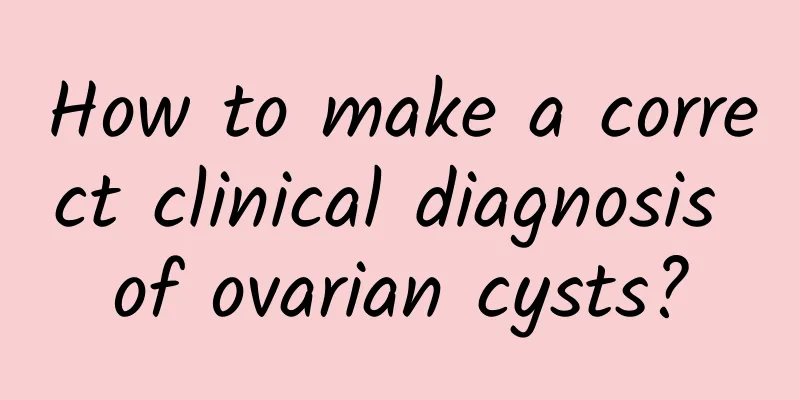Will the fetus develop abnormalities after successful fetal preservation for threatened abortion?

|
In most cases, the fetus will not develop abnormalities after a threatened abortion is successfully preserved, but the specific situation depends on the cause of the threatened abortion. Common influencing factors include genetic abnormalities, infection, and inadequate health management during pregnancy. Medical testing and pregnancy monitoring are required to clarify the actual risks and ensure the normal development of the fetus. 1. Fetal health after threatened abortion Threatened abortion refers to symptoms such as vaginal bleeding or abdominal pain in pregnant women in early pregnancy, which may indicate the risk of miscarriage. Generally speaking, after successful fetal preservation, if the mother and fetus are in good health, the fetus will not have developmental deformities in most cases. However, there may be certain risks for some factors related to the causes of miscarriage, such as chromosomal abnormalities and infections. Clinically, personalized assessments are required through B-ultrasound, fetal chromosome testing, pregnancy examinations, etc., and the specific impacts are determined. 2. Potential impact of threatened abortion on fetal development Genetic factors: A common cause of threatened abortion is chromosomal aberration in the embryo. If the pregnancy is successfully preserved, genetic problems may lead to the potential risk of abnormal fetal development or fetal demise. However, if no abnormalities are found during subsequent prenatal examinations, you can usually rest assured. Infectious diseases: If pregnant women are infected with cytomegalovirus, toxoplasmosis, rubella virus, etc., it may affect the development of the embryo and cause fetal malformations. During pregnancy, special attention should be paid to stay away from complex pollution sources and get preventive vaccines on time. Maternal health conditions: Maternal diseases such as anemia, diabetes, thyroid disease, and hypertension may increase the risk of miscarriage or affect the healthy development of the fetus. Timely treatment and strict control of the disease can effectively reduce the risk. 3. How to ensure the normal development of the fetus after successful pregnancy preservation Medical examination: After preserving the fetus, pregnant women need to undergo regular prenatal examinations, especially NT examinations at 11-14 weeks and mid-term four-dimensional color Doppler ultrasound examinations at 20-24 weeks, to timely screen for abnormal fetal organ development. Health management: Pay attention to adequate rest, avoid excessive physical activity, eat a balanced diet, supplement the nutrients such as folic acid, iron, calcium, etc. required during pregnancy, and ensure the conditions required for fetal growth and development. Psychological adjustment: Stay optimistic and avoid anxiety, because long-term mental stress may indirectly affect fetal development. After the vast majority of threatened abortions are successfully managed, the fetus is likely to develop normally, provided that the pregnant woman follows the doctor's advice, has regular prenatal checkups, and does a good job of health management during pregnancy. If you face high-risk factors, you should consult a professional doctor for targeted advice to reduce potential risks. |
<<: When should a urinary catheter be inserted during interventional embolization for adenomyosis?
>>: Can I get pregnant with uterine fibroids? Is it dangerous?
Recommend
To avoid rapid aging and obesity, your body needs "this" fuel! 4 tips to start ketosis and fat burning
If you don’t want to age quickly and gain weight,...
Uterine fibroids usually appear first with menstrual changes
Uterine fibroids usually first show menstrual cha...
If you have adnexitis, you may experience varying degrees of abdominal pain.
If you have adnexitis, you may experience varying...
How many days should I stay in bed after a miscarriage? Experts will show you the answer to this question
The care after a miscarriage is very similar to t...
Black fungus diet recipes to detoxify and get a good figure
To lose weight through diet, there are three most...
Using perfume in private parts can cause vaginitis
Some girls pay attention to dressing up, like to ...
What to do if you have mild cervical erosion after pregnancy
Cervical erosion can be divided into three types:...
Clinical features of uterine fibroids
Uterine fibroids, also known as uterine leiomyoma...
The difference between acute cervicitis and chronic cervicitis
Cervicitis is divided into two types: acute cervi...
How to better prevent vulvar day shift?
Now that we know what vulvar leukoplakia is, we a...
Will ectopic pregnancy affect future pregnancy? See what the doctor says
Whether an ectopic pregnancy will affect later pr...
What are the diagnostic methods for endometrial tuberculosis?
When it comes to endometrial tuberculosis, I beli...
Treatment of premature menstrual irregularity by TCM differentiation of syndromes
Traditional Chinese medicine believes that premat...
Let’s talk about whether uterine fibroids will affect fertility?
Experts remind that women with uterine fibroids d...
The goddess loves to eat the "Pound Diet" to lose weight, fight inflammation, and reduce the three highs
High blood pressure and heart disease are actuall...









